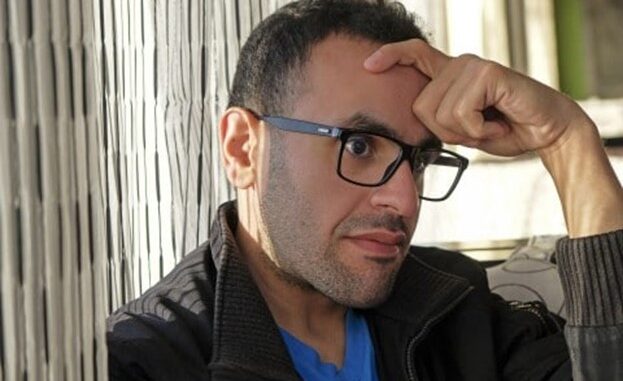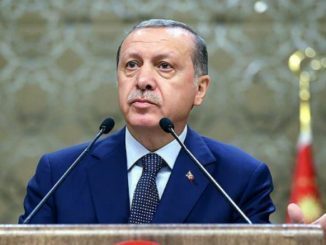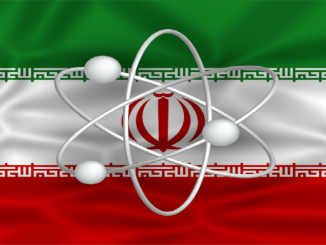
Instead of moving against the existential danger posed by the Grand Ethiopian Renaissance Dam, the Egyptian diplomacy moves for the arrest rights defender Mohamed Sultan!!
Egypt’s spy chief Abbas Kamel has claimed that Washington signed a document agreeing to have Egyptian-American Mohamed Soltan serve his life sentence in US
Egypt’s intelligence director has claimed the US agreed to imprison Egyptian-American activist Mohamed Soltan after he was released from prison in Egypt in 2015, Politico reported.
In a visit to Washington last month, Abbas Kamel asked lawmakers why Soltan was “free and living in Virginia” when the US had promised Egypt that he would serve the remainder of his life sentence in a US prison.
Kamel gave congressional staffers a document appearing to be a signed agreement between Egyptian and American officials laying out such an arrangement.
The document, written in Arabic, appears to have been signed by an American embassy representative and a representative of “Interpol Cairo”.
It states that Soltan is to be sent to “his home country to resume his sentence under the oversight of the appropriate authorities”.
Commenting on this issue in English, Mohamed Soltan said on Twitter:
Soltan, an Ohio State University economics graduate, mediated between foreign media and protest leaders at Cairo’s Rabaa al-Adawiya square in July 2013.
Soltan was arrested shortly after the protests were violently stamped out and spent nearly two years in prison, 490 days of which he was on hunger strike. He told MEE in a previous interview that he lost a third of his body weight and nearly died 10 times.
His hunger strike gained worldwide attention, adding pressure on the US government to secure his release.
He was ultimately released from an Egyptian prison in May 2015, stripped of his Egyptian citizenship and sent to the US.
Commenting on the issue in Arabic, Mohamed Soltan said on his Twitter account:
“I swear by God it is a mockery that is not worthy of a country the size of Egypt. I don’t deserve the time they wasted with American officials talking about me instead of talking about the Grand Ethiopian Renaissance Dam (GERD) and the Egyptians’ water rights that are about to be lost. I wish the diplomatic moves of Egyptian officials would be more keen on our people and that they would spare their efforts for the existential issue of the Nile,” he said.
Earlier this year, several members of Soltan’s family were arrested in Egypt, in apparent retaliation for his advocacy work.
Politico reported that it appeared one of the persons’ names in the document was Nolen Johnson, who was a US diplomat based in Egypt at the time of Soltan’s release.
In his Linkedin profile, Johnson states that he “received a group Superior Honor Award for my part in securing the release and repatriation of a high-profile Egyptian-American detainee”.
One person familiar with the issue told Politico the State Department has seen the document and that officials told the person that one of the department’s employees signed the letter when it was pushed on them at the last minute in the airport in Egypt. The person told the newspaper that the document was not legally enforceable.
The State Department said it did not have a comment on the letter, and the Egyptian embassy in Washington did not respond to Middle East Eye’s request for comment by the time of publication.
The revelation of the letter comes as progressive members of Congress and rights groups are calling on US President Joe Biden to withhold part of the aid money that is sent to Cairo each year.
Congress has been imposing human rights conditions on $300m of the $1.3bn military aid to Egypt, but previous administrations have issued national security waivers to bypass the restrictions.
Sarah Leah Whitson, executive director of Democracy for the Arab World Now (DAWN), said that conditioning this aid is the “least” that the Biden administration can do.
“In reality, there should be zero US dollars and zero cents going to Egypt’s brutal dictatorship,” she tweeted on Monday.
It is a “fictional notion that aid secures US interests” and there are “bloated and diseased claims that [the] US has 1.5b worth of interests there”.
Biden had previously promised “no more blank checks” for Sisi’s government. However, his administration was criticized earlier this year for approving a $200m arms sale to Egypt around the same time it was reported that the Egyptian government arrested Soltan’s relatives.
Following is POLITICO’s report titled, “In D.C. visit, Egypt spy boss claims U.S. agreed — in writing — to jail American activist“
POLITICO obtained a copy of the alleged agreement, which surfaced as the Biden administration weighs reducing military aid to Cairo.
During a visit to Washington last month, Egypt’s spy chief made a claim that startled U.S. lawmakers already worried about human rights in the Middle Eastern country.
The United States, Abbas Kamel insisted while on Capitol Hill, had promised back in 2015 that if Egypt released American activist Mohamed Soltan he would serve out the rest of his life sentence in a U.S. prison. So why was Soltan free and living in Virginia? Kamel asked. The spymaster even handed Hill staffers and others a document, a copy of which was obtained by POLITICO, that appears to be a signed agreement between Egyptian and American officials laying out such an arrangement. Egypt had charged Soltan with terrorism-related offenses, including spreading “false news,” that human rights advocates called bogus.
Kamel’s questioning of Soltan’s freedom was audacious, not least because it comes at a highly sensitive time: The Biden administration is engaged in an intensifying internal debate over whether to hold back any, all or some of at least $300 million in military aid to Cairo over its human rights abuses. The funding is meeting some unusual resistance inside the State Department, and a decision is expected in weeks.
Progressive members of Congress are urging the Biden team to withhold the money. They note that Biden promised to make human rights a priority in his foreign policy and that he even pledged that there would be “no more blank checks” for Abdel Fattah El-Sisi, the Egyptian dictator who has imprisoned tens of thousands of dissidents. Of particular urgency is the pending executions of 12 people linked to the Muslim Brotherhood, an Islamist movement that disavows violence, and which Sisi views as a threat.But, in the eyes of many engaged in the administration’s debate, Egypt remains too important an ally to disfavor. It is a partner in the fight against terrorism, and it has kept its peace deal with Israel despite going through a revolution, questionable elections and a coup over the past decade. Sisi’s government also brokered a recent cease-fire between Israel and Hamas militants, a move that has helped Cairo’s image in Washington.
How the Biden administration hands out military aid to Egypt has now become an early test of its commitment to human rights. “When it pulls punches on tough cases like Egypt, it shows just how hard it is to actually make human rights a priority in reality,” said Brian Katulis, a senior fellow with the Center for American Progress.
An unenforceable agreement?
Soltan describes himself as a human rights defender who was caught up in the chaos in Egypt as he tried to share the news of Sisi’s power grab in 2013. He is the son of a prominent Muslim Brotherhood figure, but he says he’s not a member of the group.
In May 2015, following intense negotiations, the Sisi regime freed Soltan into U.S. custody, allowing him to return to America after giving up his dual Egyptian citizenship. Reports from the time indicate that Egyptian officials claimed their American counterparts had agreed that Soltan would serve the remainder of his life sentence out in a U.S cell.It’s unlikely that the U.S. justice system would have imprisoned Soltan for the political commentary or other alleged misdeeds that landed him in Sisi’s prisons. But whether the United States technically agreed to such a deal is a different question.
Biden administration officials would not tell POLITICO if the document Kamel produced was real or if he had shared it with anyone in the executive branch during his meetings in Washington. The State Department refused to comment.
However, a person familiar with the issue, one of several who spoke to POLITICO to describe the events laid out in this story, said State Department officials have seen the document. Officials there told the person that one of the department’s employees signed it when it was pushed on them at the airport at the last minute, as U.S. officials were trying to get Soltan out of the country. It’s not legally enforceable, the person said the department told him.
The Arabic-language document purports to have been signed by a U.S. embassy representative and a representative of “Interpol Cairo.” It states that Soltan is to be sent to “his home country to resume his sentence under the oversight of the appropriate authorities.”It is difficult to decipher the signature of the American said to have signed the document. The document, however, states that Soltan was handed over to two people in a U.S. security convoy. One of the people’s names, written in Arabic, appears to be Nolen Johnson, and the signature appears to contain an “N” and a “J.”
According to his LinkedIn profile, Johnson is a U.S. diplomat who was based in Egypt at the time of Soltan’s release. Johnson states in the profile that he “received a group Superior Honor Award for my part in securing the release and repatriation of a high-profile Egyptian-American detainee.”
Johnson did not reply to requests for comment. The Egyptian Embassy in Washington also did not reply to multiple requests for comment.
In a statement, Soltan called Kamel’s claims a “natural progression of the well-documented intimidation and bullying campaign by the Egyptian regime against me and human rights defenders.”
“I hope my government responds swiftly and decisively to protect my basic rights and freedoms from their aggression,” he said.
A plea from progressives
Lingering over all this is the question of how much U.S. military aid to send to Egypt. The Arab-majority country is the recipient of some $1.3 billion a year in military aid. Of that, $300 million can only be handed over if Egypt meets certain human rights-related conditions demanded by Congress. But the secretary of state has the option to overrule those requirements and give Egypt the money if he decides it’s in the U.S. interest.In May, seven progressive U.S. senators, including Elizabeth Warren of Massachusetts and Sherrod Brown of Ohio, wrote a letter to Secretary of State Antony Blinken urging him to hold back the $300 million. A copy of the letter, which has not been previously made public, was obtained by POLITICO.
The senators noted that there are “an estimated 20,000 — 60,000 political prisoners in Egypt,” adding, “We are particularly concerned about the health and safety conditions in which prisoners of conscience are being held, exacerbated by the COVID-19 pandemic.”
Within the administration, the debate over withholding the aid is not falling entirely along the usual lines, foreign policy analysts and other people familiar with the issue said. All stressed that the discussion is still far from over and the positions could shift.
Officials with the State Department bureau that is focused on human rights are arguing for withholding the money, pointing out that Sisi is clearly running a highly repressive regime that tolerates little to no dissent. That position is opposed by the State Department bureau that deals with the Middle East, whose officials — as is usually the case — want to keep the relationship with Cairo strong and stable.What’s somewhat unusual is that officials with the State Department’s Bureau of Political-Military Affairs are signaling that they may side with the human rights bureau this time, analysts and other people familiar with the issue said. That bureau, led by acting Assistant Secretary of State Timothy Alan Betts, has a major role in overseeing military aid to other countries.
One option is to split the difference — withhold some of the $300 million — to signal Washington’s displeasure with Cairo, people familiar with the issue said. Another option is to hand over all or some of the money but require that it be spent in specific ways. For example, the U.S. could demand that some of the money be spent on maritime security in the region, which would help U.S. interests.
“If the Egyptians are doing it, it means the U.S. military doesn’t have to do it,” said a State Department official, who spoke on condition of anonymity because of a lack of authorization to speak to the media.
Asked for official comment on the internal discussions, the State Department said it was “not in a position to preview future decisions.” A spokesperson for the White House-based National Security Council did not offer comment.
Check, please
Blinken’s position on the aid to Egypt is unclear at this stage. In 2011, however, Blinken broke with then-Vice President Biden when it came to supporting an Egyptian popular uprising against then-dictator Hosni Mubarak. Biden wanted the U.S. to back Mubarak, citing his longtime assistance to the United States. Blinken, who served as Biden’s national security adviser at the time, joined other aides in urging then-President Barack Obama to support the aspirations of youthful Egyptians seeking a democracy.
The Arab Spring revolution in Egypt led to the brief but tempestuous rule of Egyptian President Mohamed Morsi, a Muslim Brotherhood figure. Sisi, the army chief, overthrew Morsi in July 2013 and began a crackdown on dissent that human rights advocates say is worse than what Egyptians endured in the Mubarak years. In one early and notorious episode, Sisi’s forces killed more than 800 protesters roughly a month after his coup. Soltan, who says he was covering the events as a citizen journalist, was wounded by a bullet during that crackdown. (Some reports from the time described Soltan as a spokesperson for the protesters; other reports say he screened speeches.)
During his presidency, Donald Trump paid little heed to Sisi’s human rights violations, even reportedly calling him his “favorite” dictator. Trump’s first secretary of state, Rex Tillerson, to the pleasant surprise of many activists, found ways to restrict aid to Egypt to pressure it on human rights. Trump fired Tillerson in 2018, however, and the next secretary of state, Mike Pompeo, signed off on the aid to Cairo.
The State Department’s own annual Human Rights Report details a litany of abuses in Egypt, from extrajudicial killings to torture to politically motivated reprisals against people outside the country. During his campaign for president, Biden slammed Trump’s tolerance for such abuses by any country, and, in a tweet, promised, “No more blank checks for Trump’s ‘favorite dictator.’ Supporters of Egypt’s ousted President Mohammed Morsi chant slogans during a protest in Ramses Square in downtown Cairo on Aug. 16. More than 60 people were killed Friday, dubbed a “Day of Rage.” But since Biden took office in January, Egypt has found ways to be useful to the United States, most prominently by helping negotiate a ceasefire between Israel and Hamas militants in the Gaza Strip after an 11-day stretch of clashes in May. In the days that followed, Blinken visited Egypt and met with Sisi; he called Egypt an “effective partner” in dealing with the Israeli-Palestinian crisis. Some analysts say Egypt is no longer as critical a U.S. ally as it was in years past, despite being helpful in places like Gaza as well as Libya.
“Egypt’s more constructive and pragmatic regional role in recent months has produced good will and breathing space for Cairo, but at root this approach to regional affairs is reflective of Egypt’s own self-interests and not a byproduct of its relationship with the United States,” said Michael Hanna, director of the U.S. program at the International Crisis Group.
The Biden administration at times prefers to keep its frustration with countries like Egypt a behind-the-scenes issue, arguing that it can be more effective that way.
In recent weeks, activists have been pushing the Biden administration to speak out against the planned execution in Egypt of a dozen Muslim Brotherhood figures who appear to have been condemned due to their political beliefs.
According to emails seen by POLITICO, State Department officials say they have been raising the issue of the 12 condemned men in private discussions with Egyptian counterparts. The emails suggest the Biden administration does not want to go public with its concerns, however.
In one email, a State Department official says he even brought up the topic with a high-ranking U.S. general, who promised that he would raise it with the Egyptian government as well.The 12 dissidents on death row are examples of why Biden should put a hold on the military aid to Cairo, activists said.
It’s “the very least his administration” can do, said Sarah Leah Whitson, executive director of Democracy for the Arab World Now. Allowing the aid to reach Sisi “would be a Biden vote of confidence for his reign of terror.”



